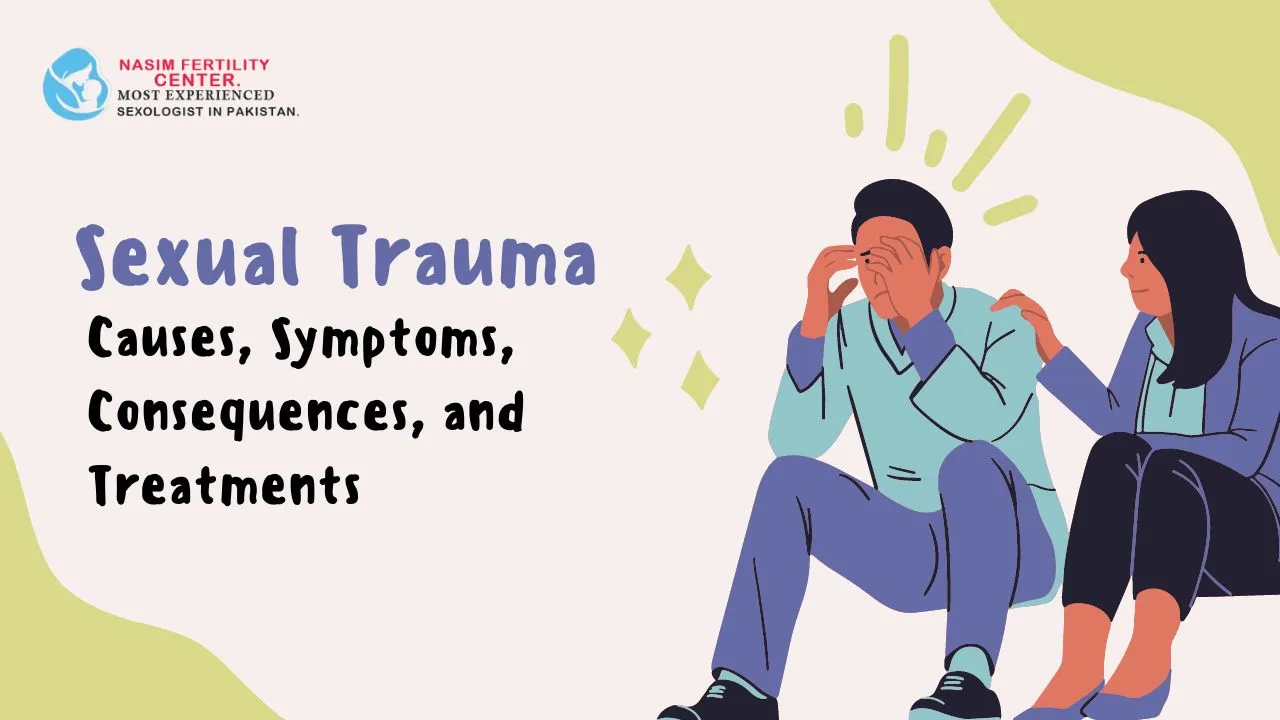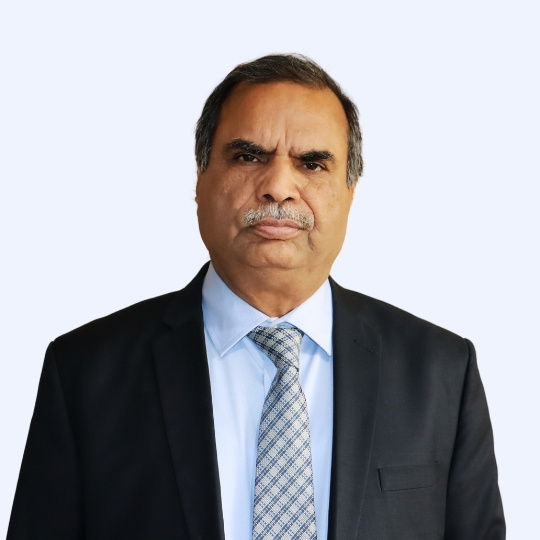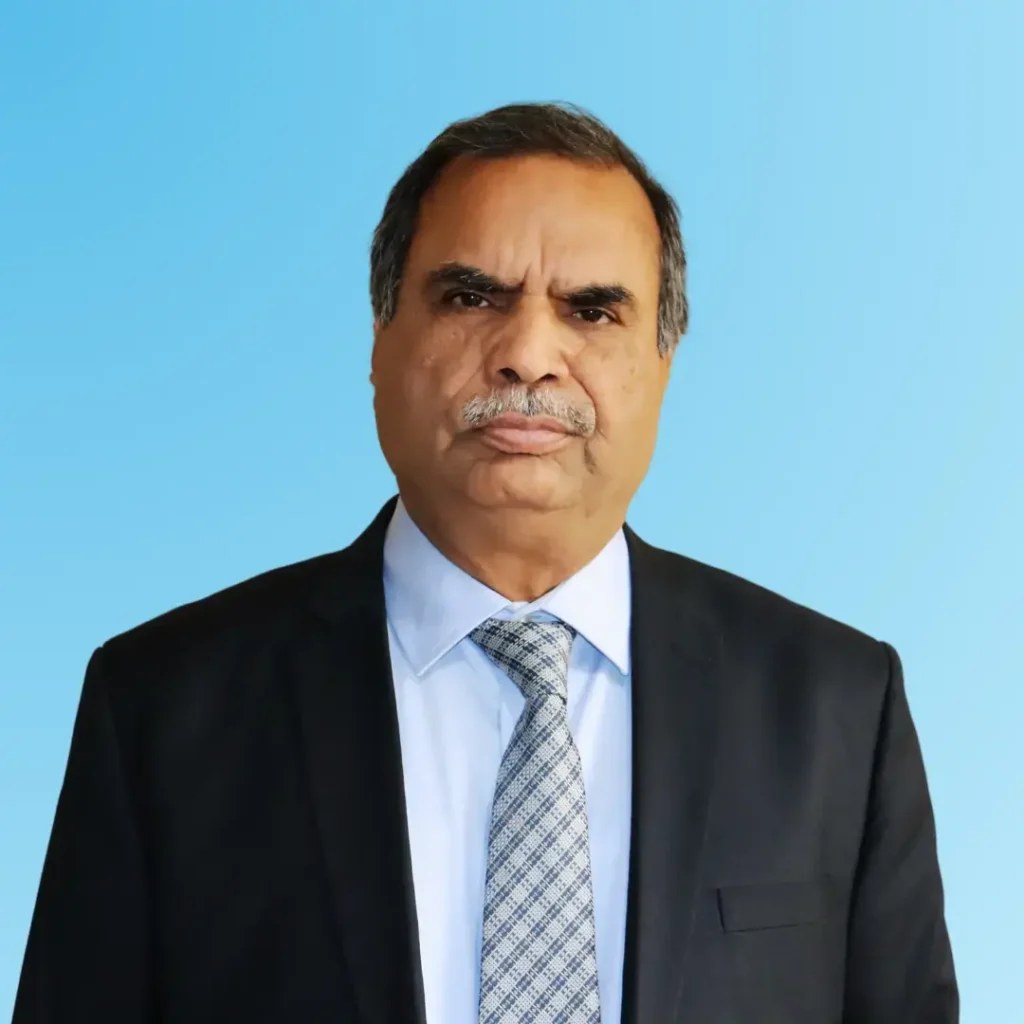
Sexual trauma is a devastating experience that can have profound and long-lasting effects on an individual’s physical, emotional, and mental well-being. It is a pervasive issue that affects people of all ages, genders, and backgrounds, and is particularly prevalent in Pakistan, where cultural taboos and stigma often prevent survivors from seeking help.
In this article, we will explore the causes, symptoms, consequences, and treatments of sexual trauma, with a focus on the expertise of Dr. Farooq Nasim Bhatti, a renowned sexologist who offers specialized treatment for sexual trauma and other sexual health issues at Nasim Fertility Center in Lahore, Islamabad, and Faisalabad.
What is Sexual Trauma?
Sexual trauma refers to any sexual act or experience that is forced upon an individual without their consent, including rape, sexual assault, childhood sexual abuse, and sexual harassment.
It can involve physical contact, such as unwanted touching or penetration, or non-physical acts, such as verbal abuse, exhibitionism, or voyeurism. Sexual trauma is a violation of an individual’s bodily autonomy and can have a profound impact on their sense of safety, trust, and self-worth.
Causes of Sexual Trauma
Sexual trauma can occur in a variety of contexts and can be perpetrated by anyone, including family members, intimate partners, acquaintances, or strangers. Some of the most common causes of sexual trauma include:
- Childhood sexual abuse: This refers to any sexual act between an adult and a child, including fondling, exposure to pornography, or penetration. In Pakistan, child sexual abuse is a pervasive issue that is often underreported due to cultural taboos and stigma.
- Intimate partner violence: This refers to sexual violence that occurs within the context of an intimate relationship, such as marital rape or sexual coercion. In Pakistan, intimate partner violence is a widespread problem that is often normalized and tolerated due to patriarchal norms and gender inequalities.
- Sexual assault by a stranger: This refers to sexual violence perpetrated by someone unknown to the survivor, such as a random attack or abduction. In Pakistan, sexual assault by strangers is a growing concern, particularly in urban areas like Lahore and Islamabad.
- Sexual harassment: This refers to unwanted sexual advances, comments, or behaviors that create a hostile or intimidating environment. In Pakistan, sexual harassment is a pervasive issue that affects women and girls in all spheres of life, including education, employment, and public spaces.
Kya aap kisi purane sexual trauma ka shikar hain?
Dr. Farooq Nasim Bhatti, Pakistan ke experienced sexologist se confidential counselling lein — emotional healing aur behtari ki taraf pehla qadam uthayein, bina kisi judgment ke.

Symptoms of Sexual Trauma
The symptoms of sexual trauma can vary from person to person and may manifest differently depending on the nature and severity of the trauma. Some common symptoms include:
- Emotional symptoms: Survivors of sexual trauma may experience a range of emotional symptoms, including fear, shame, guilt, anger, anxiety, and depression. They may also experience flashbacks, nightmares, or intrusive thoughts related to the trauma.
- Physical symptoms: Sexual trauma can also have physical effects on the body, such as chronic pain, headaches, fatigue, and gastrointestinal problems. Survivors may also experience sexual dysfunction, such as difficulty with arousal or orgasm, or avoidance of sexual activity altogether.
- Behavioral symptoms: Survivors of sexual trauma may engage in self-destructive behaviors as a way of coping with their trauma, such as substance abuse, self-harm, or risky sexual behavior. They may also experience changes in their relationships, such as difficulty trusting others or avoiding intimacy.

Consequences of Sexual Trauma
The consequences of sexual trauma can be far-reaching and can impact every aspect of a survivor’s life. Some of the most common consequences include:
- Mental health problems: Survivors of sexual trauma are at increased risk for developing mental health problems such as post-traumatic stress disorder (PTSD), depression, anxiety, and substance abuse disorders. These conditions can have a profound impact on a survivor’s quality of life and may require long-term treatment.
- Physical health problems: Sexual trauma can also have long-term physical health consequences, such as chronic pain, pelvic inflammatory disease, and sexually transmitted infections. Survivors may also be at increased risk for developing certain cancers, such as cervical or anal cancer.
- Relationship problems: Sexual trauma can have a profound impact on a survivor’s ability to form and maintain healthy relationships. Survivors may struggle with trust, intimacy, and communication in their relationships, which can lead to conflict and isolation.
- Economic consequences: Sexual trauma can also have economic consequences for survivors, such as lost wages due to missed work or difficulty maintaining employment. Survivors may also incur significant medical and mental health expenses related to their trauma.
Also Read: Venous Leak
Treatments for Sexual Trauma
Fortunately, there are effective treatments available for survivors of sexual trauma that can help them heal and recover from their experiences. Some of the most common treatments include:
- Psychotherapy: Psychotherapy is a type of talk therapy that can help survivors process their trauma and develop coping skills. Some effective forms of psychotherapy for sexual trauma include cognitive-behavioral therapy (CBT), trauma-focused CBT, and eye movement desensitization and reprocessing (EMDR).
- Medication: Medication can be used to treat some of the symptoms of sexual trauma, such as depression, anxiety, or PTSD. Antidepressants and anti-anxiety medications are commonly prescribed to survivors of sexual trauma.
- Support groups: Support groups can provide a safe and supportive environment for survivors to share their experiences and connect with others who have gone through similar traumas. Support groups can be led by trained facilitators or peer survivors and can be found through local rape crisis centers or mental health organizations.
- Holistic approaches: Holistic approaches to healing from sexual trauma can include practices such as yoga, meditation, art therapy, and acupuncture. These approaches can help survivors reconnect with their bodies and promote relaxation and stress relief.
Expertise of Dr. Farooq Nasim Bhatti
Dr. Farooq Nasim Bhatti is a renowned sexologist and expert in the treatment of sexual trauma and other sexual health issues. He is the founder of Nasim Fertility Center, which has locations in Lahore, Islamabad, and Faisalabad, and offers specialized treatment for a range of sexual health concerns.
Dr. Bhatti has over 31 years of experience in the field of sexology and has presented his research on sexual dysfunction and infertility at international conferences around the world. He is the first and only recognized MBBS, FAACS (USA), Diplomate of the American board of Sexology (USA), CST, HSC (Hong Kong), CART (MALAYSIA), CART (CHINA), medical sexologist doctor in Pakistan.
At Nasim Fertility Center, Dr. Bhatti and his team offer a range of services for survivors of sexual trauma, including psychotherapy, medication management, and holistic approaches to healing. They provide a safe and confidential environment for survivors to share their experiences and receive the support and care they need to heal and recover.
In addition to treating sexual trauma, Dr. Bhatti also specializes in the treatment of other sexual health issues such as premature ejaculation, erectile dysfunction, low libido, and infertility. He offers both in-person and online consultations for patients throughout Pakistan and beyond.
Conclusion
Sexual trauma is a devastating experience that can have profound and long-lasting effects on an individual’s physical, emotional, and mental well-being. It is a pervasive issue in Pakistan that is often underreported and stigmatized, but there are effective treatments available for survivors who seek help.
If you or someone you know has experienced sexual trauma, it is important to seek support and care from a qualified professional like Dr. Farooq Nasim Bhatti at Nasim Fertility Center. With the right treatment and support, it is possible to heal from the trauma of sexual violence and reclaim your life.
Remember, you are not alone, and help is available. Contact Nasim Fertility Center today to schedule a consultation with Dr. Bhatti and take the first step towards healing and recovery.
Disclaimer
This information is for educational purposes and not the treatment. For treatment, you need to consult the doctor.

Dr. Farooq Nasim Bhatti (MBBS, FAACS – USA, Diplomate: American Board of Sexology, CST, HSC – Hong Kong, CART – Malaysia & China) is a qualified medical sexologist with 30+ years of experience. He has presented 21+ research papers internationally and treats sexual dysfunction through sex therapy, counseling, and pharmacotherapy to restore natural sexual function without temporary medication.

Regain Confidence with Our ED Solutions
Explore effective treatments for erectile dysfunction. Take charge of your intimacy today.


